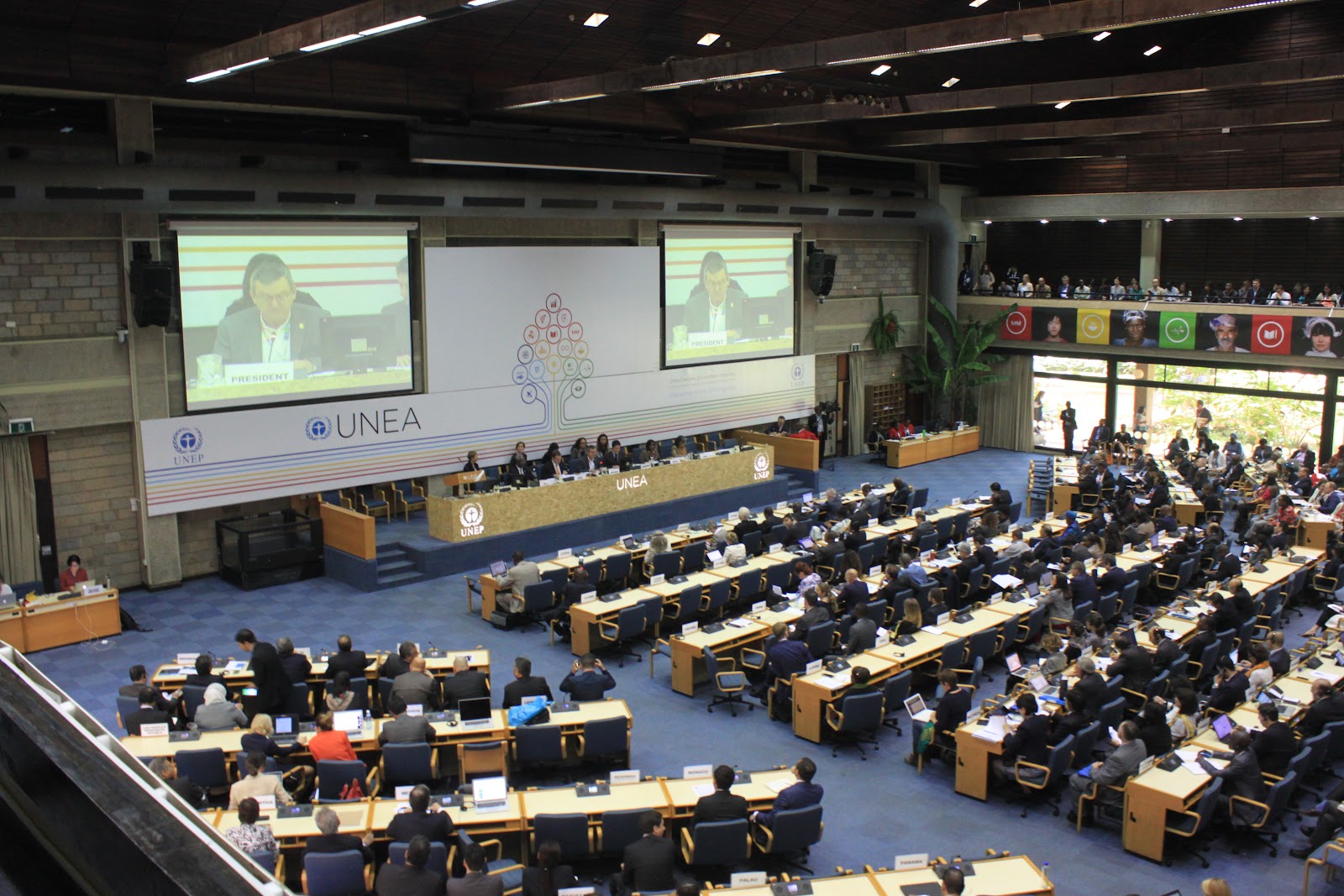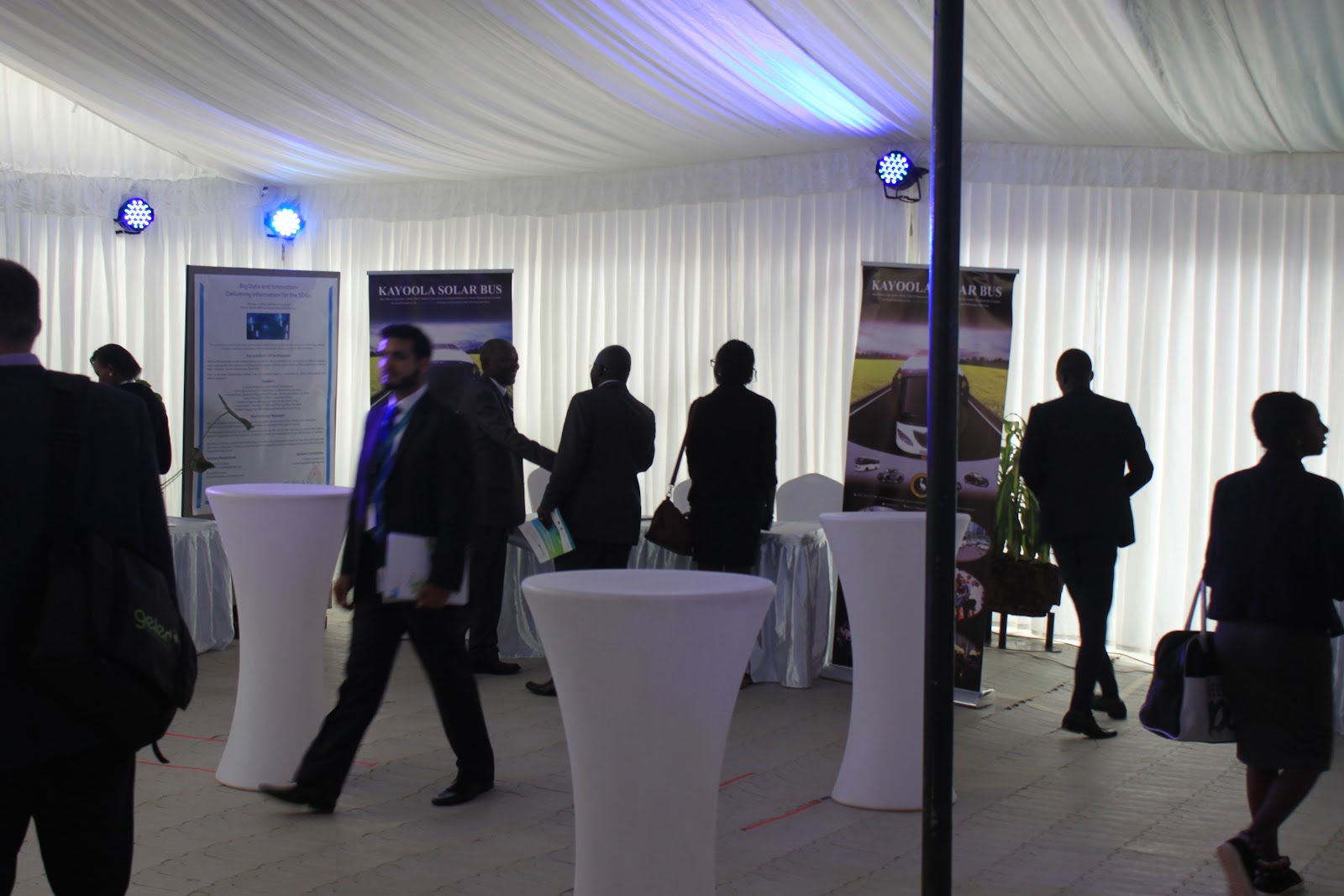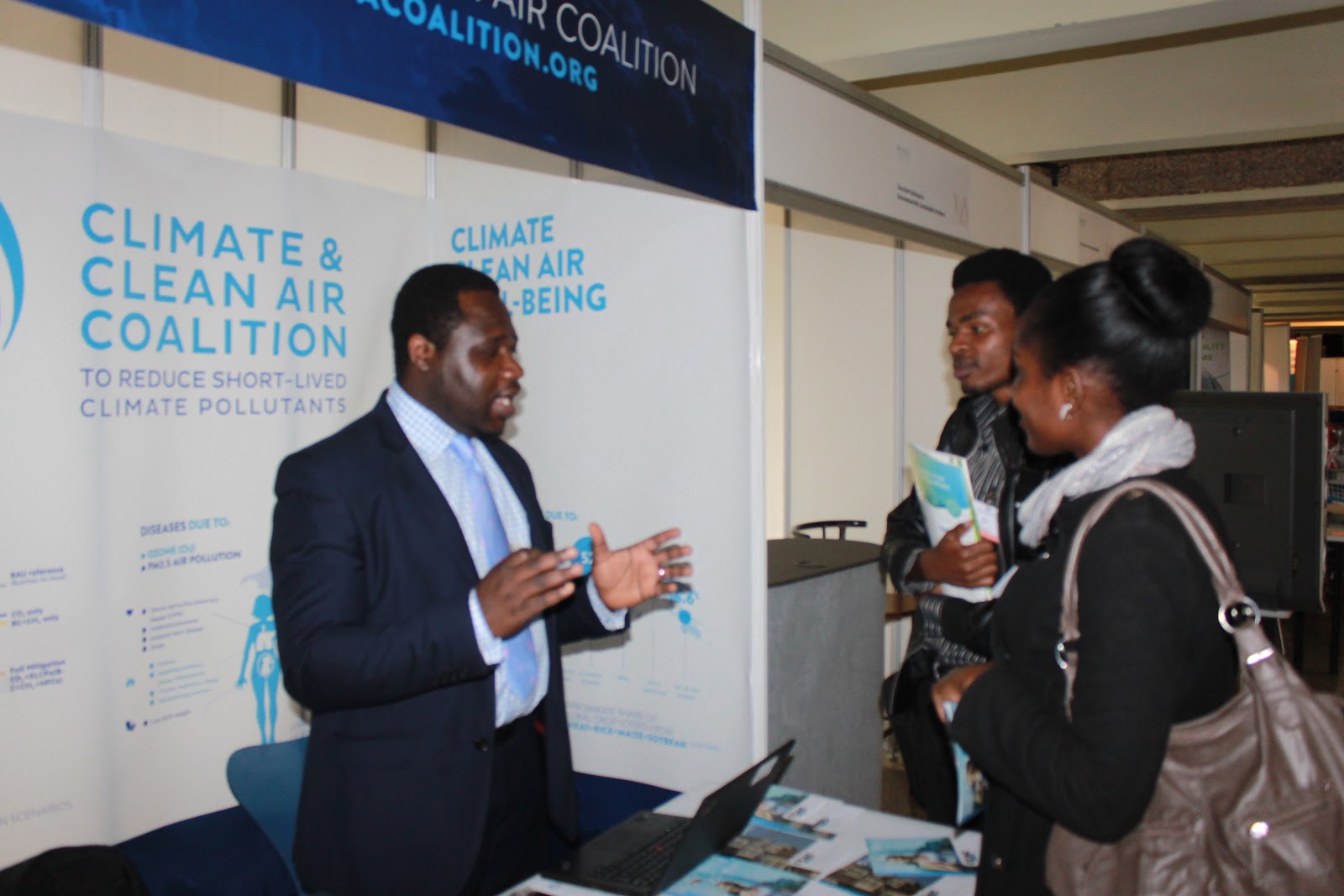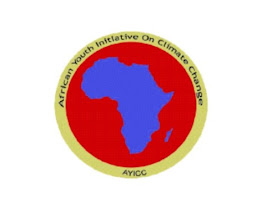UNITED NATION ENVIRONMENT ASSEMBLY (UNEA II)

Report by: Tracy Kimathi
The United Nations held the second UNEA conference that took place on the 23- 27th of May at the UNEP headquarters in Nairobi, Kenya. The theme was “Delivering on the Environmental Dimension of the 2030 Agenda for Sustainable Development”. Unlike UNEA-1, thee agenda included youth within the delegations, students from different universities as well as youth initiatives were invited to interact with over 1,000senior policy makers representing the world's highest level decision making bodies on the environment.
The conference targeted the following agendas;
- Reflection on the latest global, regional and national development related to the environment
- Innovative technologies and ideas for a more efficient strategy between South-South cooperation (S.S.C)
- Ideas for how to encourage international and regional collaboration to enable implementation of policies
- Understanding the link between S.S.C and agenda 2030
The assembly entailed Sustainable Innovation Forum and side events that targeted how different organizations/ manage their waste and pollution levels through waste reduction and recycling practices. They also looked into SDG related issues like Gender equity, Zero Hunger, No poverty, Clean water among others. For a more elaborate information, the report will cover some of the assembly`s highlights
“Africa's economies most relies on agriculture and tourism, we have the most to lose in environmental degradation. African countries should therefore invest in Conservation” H.E President, Uhuru Kenyatta.
The United Nations held the second UNEA conference that took place on the 23-27th of May at the UNEP headquarters in Nairobi, Kenya. The theme was “Delivering on the Environmental Dimension of the 2030 Agenda for Sustainable Development”. Unlike UNEA 1, the agenda included youth within the delegations, students from different universities as well as youth initiatives were invited to interact with over 1,000 senior policy makers representing the world’s highest level decision making bodies on the environment.
The conference targeted the following agendas;
- Reflection on the latest global, regional and national development related to the environment
- Innovative technology and ideas for a more efficient strategy between South-South Cooperation(S.S.C)
- Ideas for how to encourage international and regional collaboration to enable implementation of policies
- Understanding the link between S.S.C, Agenda 2030 and the Sustainable Development Goals (SDG)
The assembly composed of Sustainable Innovation forums as well as side events that targeted how different organizations/regions manage their waste and pollution levels through waste reduction and recycling practices. They also looked at SDG related issues e.g. Gender Equality, Zero Hunger, No Poverty, Clean water among others. For a more elaborate information basis, the report will cover some of the Assembly’s highlights.
“Africa’s economy mostly relies on Agriculture and Tourism, we have the most to lose in environmental degradation. African countries should therefore invest in conversation” H.E President, Uhuru Kenyatta
Opening Ceremony
The ceremony was opened by the President of UNEA Oyun Sanjaasuren with a short speech. The guests were then welcomed to snacks and beverages that they enjoyed while interacting with exhibitors as they waited for the panels to start. The following are the various exhibition information.
Exhibitions
Sky Mining- Carbon Wealth has revolutionized the game by introducing a technology that converts carbon in the atmosphere to a cheap, clean, renewable fossil fuel and they do this by planting grass!! The idea solves the problem of relying on pollutant fossil fuels to generate economic benefit and helps in removing carbon(iv) oxide via a natural process. Africa was especially a targeted region as one of the grass species that contain hyper efficient CO2 pumps is the Elephant grass, a native plant to the African grassland. Grass as a source of energy is highly renewable and cheap due to its low maintenance cost. Embracing SkyMining biology and technology will reduce consumption of charcoal, paraffin and other ‘dirty’ fossil fuels.
Kiira Motors Corporation
Kayoola Solar Bus, an initiative sponsored by President Yoweri Museveni, is now considered one of Uganda’s national treasure. The bus was manufactured in Uganda by the Kiira Motors Corporation, the first in Eastern and Central Africa to launch an electric vehicle equipped with solar invertors as a backup power system. The organization offered rides on the solar bus prototype to prove the efficiency and comfort ability of the vehicle. The success and potential of the vehicle transitioned Kiira motors program into a government funded project that is strategized to transform Uganda into a middle income economy by 2040.
Planet Labs- This is a project that initiated the launch of 113 satellites called Doves. They provide imagery data that is aimed to note unnoticeable changes especially in the environment and agriculture sector. The GIS data services are easily available at their ground stations at affordable rates. The satellites have archived data that can help one differentiate change over a period of time.
S.D.G, S.S.C and AGENDA 2030
The programs of the day concentrated on SDG, SSC and Agenda 2030 goals and the road to achieving them. Various prominent speakers came together in a panel to discuss the way forward to a sustainable, cooperative future.
Under the first delegations, It was realized that ‘Partnership through South-South Cooperation’ can be promoted by an objective based strategy where countries should strengthen political skills despise their differences and together look at long term achievement as opposed to individual, short term ones. Creation of awareness both locally and internationally was heavily emphasized through dialogues and the media [social media included]. Unity between both international and regional states will increase knowledge based ideas where every country can contribute based on individual experiences to draft achievable solutions.
A major issue raised throughout the dialogues is based on an observation where organizations like UN would hold conferences, come to agreements and set up policies that will never be subjected to implementation. ‘A barking dog that does not bite’, they say. Various comments were raised by the audience about this and it was noted that both the government and the people have a duty to ensure implementation. The people have a duty to advocate and pressure their governments to be active in periodic reviews on how they’ve contributed to the SDG agreed upon. The leaders were encouraged to involve the youth to help with these implementations as they have a larger number and an even larger voice on issues. As an addition, innovative data access technology solutions were introduced and discussed where monitoring of quality of implementations could be carried out. Organizations like Planet Labs Satellites were a major stakeholder as they could provide the imagery observations with the above stated 113 Dove Satellites.
The bigger question was however on Funding. A beautiful cartoon caricature was displayed the next day on how the public sector claims to have no money therefore handing the ball to the private sector, who cannot fund without viable economic returns. The delegations then turned its focused on How to encourage funding by making environmental ideologies profitable as well as sustainable. This closed the morning sessions releasing delegates and invited guests to lunch.
Air Quality
The afternoon delegations were set to address Air Pollution per city, nation, region as well as their sources and actions to be taken to curb the pandemic. For those who weren’t aware of the serious outcomes of this specific type of pollution, then the panel of scientists’ contributions had an overwhelming effect on them. Air pollution’s effect on the SDG goals were so severe that it took up as the leading topic on most Side events held at the UNEA. According to statistics 7-8 million premature deaths occur due to air pollution related diseases, that’s more than the total toll on HIV/AIDS, Tuberculosis and Malaria recorded deaths COMBINED! Other disadvantages include pregnancy defects and Cancer. Environmental defects cause by air pollution includes global warming and climate change. The rate of air pollution increases by 8% every 5 years. Action should be taken immediately. Sources of Air Pollution are divided into 2 basis; Indoor Sources (charcoal, paraffin use) and Outdoor Sources (Transport Industry, Burning of Waste).
The peak of the discussion spurred up when the panel guests emphasized that the reason for the quick and vast continuity of this pollution is not due to lack of technology nor lack of funding but the greed that comes from the stakeholders of already existing fossil fuel sources e.g oil and coal. The 1% that control the release and production of these resources go to extreme measures to ensure a closed pathway for free, renewable, clean energy such as solar, biomass briquettes (Note Sky Mining mentioned above), electric power… the list is endless. This was the truth and the panels were commended for their bold statements on the reserved issue.
Sky Mining was not the only revolutionary component, Air Quality Monitoring technology came to the spotlight during the Sustainable Innovation delegations. Less than a week before the Expo, a few monitors were placed within the Nairobi region and the results were displayed on the said day. The reading showcased above average patterns per area and identified the source of emission. This proved the efficiency and accuracy of the technology though the total tally of purchase and maintenance price of the equipment came to an estimate of 1 million dollars, an unexpected high pricing range. It was then brought up that for the air quality monitoring technology to be encouraged, there should be an affordability consideration, government reaction and most importantly an Interest from the ‘Mwananchi’.
Ways suggested on how to financially control the price of the monitors included; Reduction of tax on priors and Training locals rather than hiring experts to read and maintain the monitored data.
Sustainable Energy and Technology
The discussions started by comparing how different regions have progressed in achieving set Millennium Development Goals (MDGs). Countries including Australia and Canada proved to be investing in vehicles with low Sulphur emissions and non-solid cooking/heating stoves while Africa showed to having the lowest investment in clean technology. Energy production is one of the leading sources of air pollution and it has contributed to 92% of the current 300 billion tons of carbon in the atmosphere, doubling the CO2 levels in the last 25 years. Though Africa has received a lot of criticism for delay in achieving MDGs, the continent has, since the mid-1990s, arguably been making the greatest progress towards the goals. The continent should however consider making sustainable energy policies a forefront to government goals. Not only that, but also gain a sense of importance in implementation of set policies and technology for sustainable energy.
The development of a vast energy industry will create thousands of jobs and capital for the region’s citizens. As earlier discussed the technology of renewable energy supply already exists, the main barriers to be tackled are Security of Supply, Acceptance of new energy by the government as well as the people and finally Reducing the risks of investment in Renewable energy. African leaders urged the youth to embrace competitiveness in the energy industry so as to expand the options of type of energy as well as encourage reduction of price of the same. For Example; If Kengen supplied hydroelectric energy at 40ksh per KW-h then a new company emerges and opts to supply solar, hydro and geothermal harvested energy at 35ksh per KW-h, there will be a notable difference in affordability, sufficiency in supply and variety of energy sources.
Waste Management
The first afternoon delegation of the day targeted disposal of waste and its defects to the environment. Each person produces 60-70 tons of waste in a lifetime. According to snapshots presented, categories of waste ranging from organic, electronic and hazardous wastes are readily growing in developing countries. Improper disposal methods of these substances emit harmful substances that lead to air and water pollution. The debate heated up when it came to notice that developed nations dispose off their used electrical gadgets in form of ‘donations’ to developing countries, they later take no responsibility for their end-life disposal.
Big organizations were exposed by the panel members; including Apple, Microsoft and Starbucks; for tax evasion especially within the African market. The discussion came about when the importance of tax funding for waste management came to debate. The panel went ahead and created awareness on the responsibility of product manufacturers to recover their E-waste once their products are considered as waste to the user. The issue of No Producer Responsibility spurred up questions from the audience targeting the disregard that comes from E-waste transfer shipped to developing nations from developed nations. Corrupt governments that take up funds from waste management departments were also highlighted.
“Not many Citizens are aware of proper waste disposal policies, corrupt leaders use this as a sector to embezzle funds.”
An issue of E-waste Cartels was also brought up by an audience member. The cartels control the waste market and use the money earned to purchase guns and drugs. It was suggested that only proper legal systems can control this gangs and media exposure is a key component in ensuring this.
On the domestic side of the delegation, panelists encouraged citizens to adopt a recycling culture where segregation of waste (paper, plastic and organics) should be paramount. It was also noted that an individual can generate value from recycled materials as seen in composting and up cycling.

Comments
Post a Comment